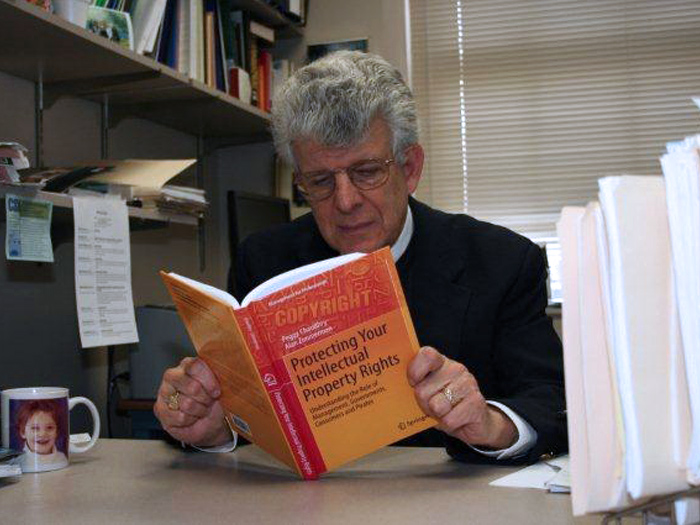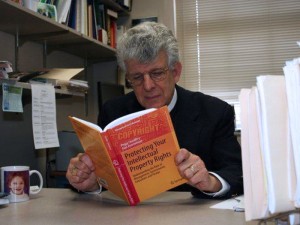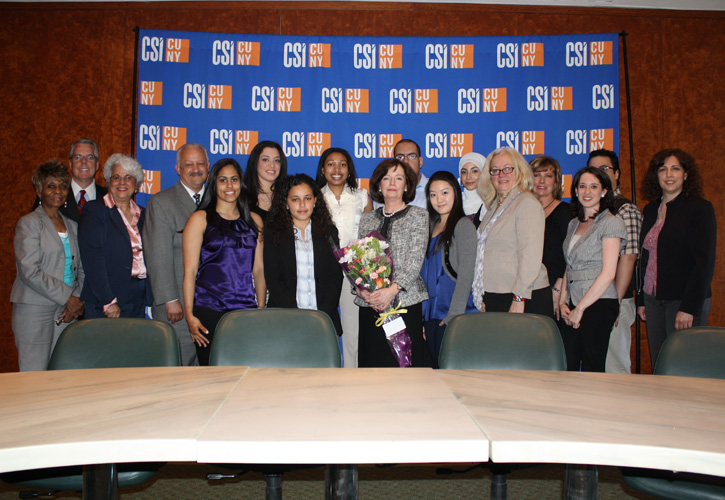Counterfeiting has become a huge problem for a wide range of industries, with estimates of approximately $500 billion in losses annually worldwide. While there is agreement that there is a severe problem with the global protection of intellectual property rights (IPR), there have been virtually no attempts to describe all aspects of the problem. Protecting Your Intellectual Property Rights: Understanding the Role of Management, Governments, Consumers, and Pirates (Springer), co-authored by CSI Professor of International Business Alan Zimmerman, offers the most complete description of various characteristics of the IPR environment in a global context.
The book, co-authored with Villanova University Professor Peggy Chaudhry, offers a comprehensive look at how managers and lawyers of major global companies should address the issue of product counterfeiting.
Professor Zimmerman, who runs the International Business Program at CSI, has also published several articles on the subject. He calls for a “holistic understanding of the problem, which must include consumer complicity to purchase counterfeit [goods], actions of the counterfeiters, as well as actions (or inaction) by home and host governments.”
Zimmerman claims that counterfeiting crosses all industries, naming software, film, pharmaceuticals, and the fashion industry as major victims. “Nearly 60 percent of all software is counterfeit,” he warns.
Apple, one of this nation’s most iconic brands, is also one of the hardest hit. At one point, researchers found “over 20 phony Apple stores in one city in China,” according to Zimmerman.
Another example of the difficulty in curtailing counterfeiting is Websites offering medicines from so-called Canadian pharmacies. Although many of them claim to be from legitimate pharmacists, many are actually based in Russia and many customers are receiving ineffective medicine or, at worst, poison.
“Counterfeiting definitely has its consequences,” said Zimmerman. Much of the money made by counterfeiting flows to terrorist organizations because the risk of punishment is relatively low. “The punishment for getting caught selling fake cigarettes is nowhere near as bad as it is for getting caught distributing heroin,” Zimmerman explained.
Professor Zimmerman worked with the British law firm, Freshfields, Bruckhaus, and Deringer, counseling the managers and lawyers for the tobacco company JTI in evaluating the difficulties in protecting the company’s intellectual property and advising them on anti-counterfeiting strategies. This field experience, combined with research conducted over the last decade, has allowed Zimmerman and Chaudhry to establish a seven-point program for developing an IP protection strategy. The program describes successful anti-counterfeiting actions and recommendations, given recent global trends in the IPR environment.
Professor Zimmerman is the Area Coordinator for the International Business (IB) program at the College of Staten Island and advises all IB majors. He is also advisor to the International Business Society, the student club focused on IB. He has also co-authored three books on international marketing.
His work has been published in journals such as Business Horizons, American Economist, the Journal of Business and Industrial Marketing, the Journal of Professional Service Marketing, and Marketing Review.


















